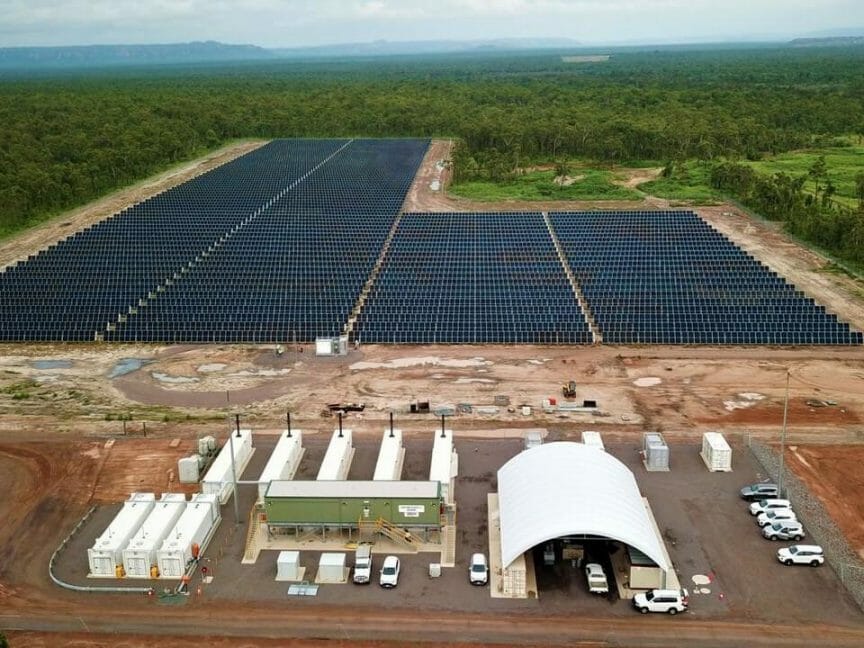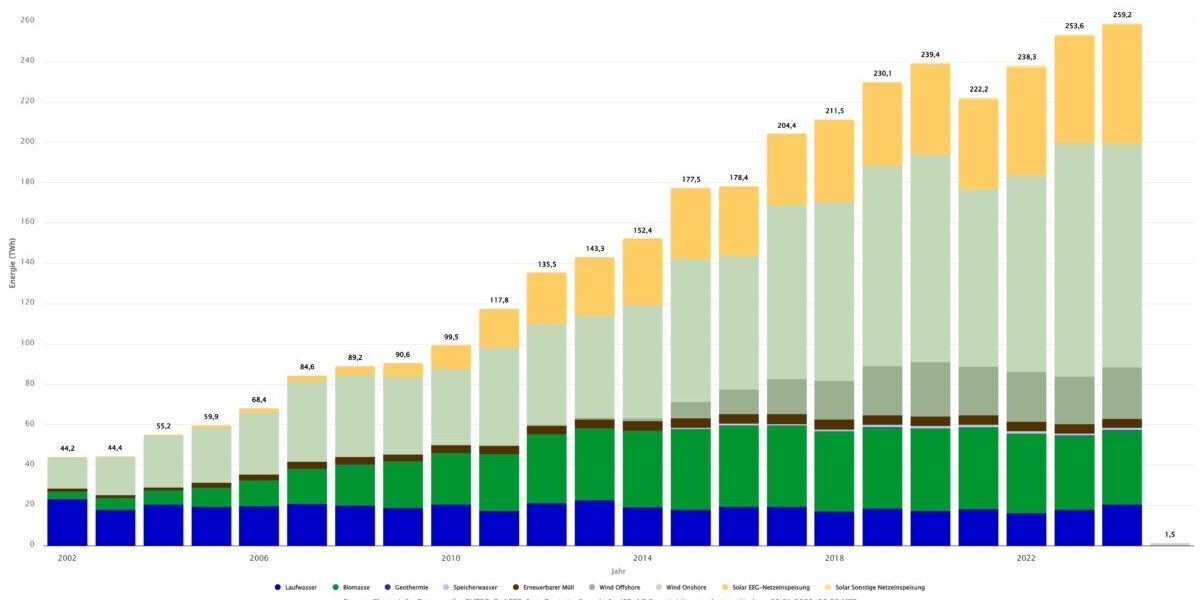The former mining town of Jabiru, Australia, is now powered entirely by solar PV. Queensland-based energy producer Energy Developments Limited (EDL) has completed the construction of a AUD 77 million ($54.8 million) offgrid integrated hybrid power plant featuring solar generation and battery energy storage, backed by diesel-fueled generators.
EDL Chief Executive Officer James Harman said the town, which had previously been powered by diesel generators associated with the now-defunct Ranger Uranium Mine, had been powered entirely by solar PV earlier this week as part of the final commissioning of the new hybrid power plant.
“The Jabiru Hybrid Renewable Power Station is now providing the town with stable, reliable energy that is at least 50% renewable over the long term, enabling the community to realise their vision of being an ecologically sustainable tourism and cultural hub for the region,” said Harman.
EDL will own and operate the new off-grid power system, which features a 3.9MW solar farm and a 3MW/5MWh battery energy storage system, backed up by 4.5MW of diesel-fired generators.
Chief Minister Michael Gunner called the commissioning of the power plant a “milestone” for the territory. “For the first time, Jabiru became the first town in the territory to be powered by 100% solar for a day,” he said, adding the renewable energy power plant will provide “better and more reliable services.”
The 100% solar PV milestone follows a similar achievement in the Western Australian town of Onslow. State-owned utility Horizon Power successfully powered the Pilbara community with renewable energy during a trial of the Onslow Distributed Energy Resource (DER) Project. Horizon said electricity was powered by 600kW of utility solar PV and 700kW of rooftop solar, supported by battery technology.
For EDL, the Jabiru Hybrid Renewable Power Station builds on its success with the 56MW Agnew Gold Mine microgrid project in Western Australia’s northern Goldfields region. The Agnew microgrid integrates a 4MW solar array, 18MW wind farm, and 13MW/4 MWh battery energy storage system, backed by a 21MW gas/diesel engine power plant.
EDL has also been contracted to build, own and operate a 4MW solar plant and 4 MW/4 MWh battery energy storage system that will connect to the existing mini-grid at Weipa on Queensland’s Western Cape York Peninsula. The new solar plant and battery storage system will complement the existing 1.7MW solar farm and connect directly to the Weipa electricity network, helping provide reliable power for mining giant Rio Tinto’s Weipa bauxite mine and processing facilities as well as the surrounding community. Construction of the project is expected to be completed later this year.
This content is protected by copyright and may not be reused. If you want to cooperate with us and would like to reuse some of our content, please contact: editors@pv-magazine.com.




Please clarify BESS 13 MW/4 MWh & 4 MW/4 MWh, how to define its capacity? What’s the cost of such BESS’ ?
Regards,
Roestomo Sosroprayitno